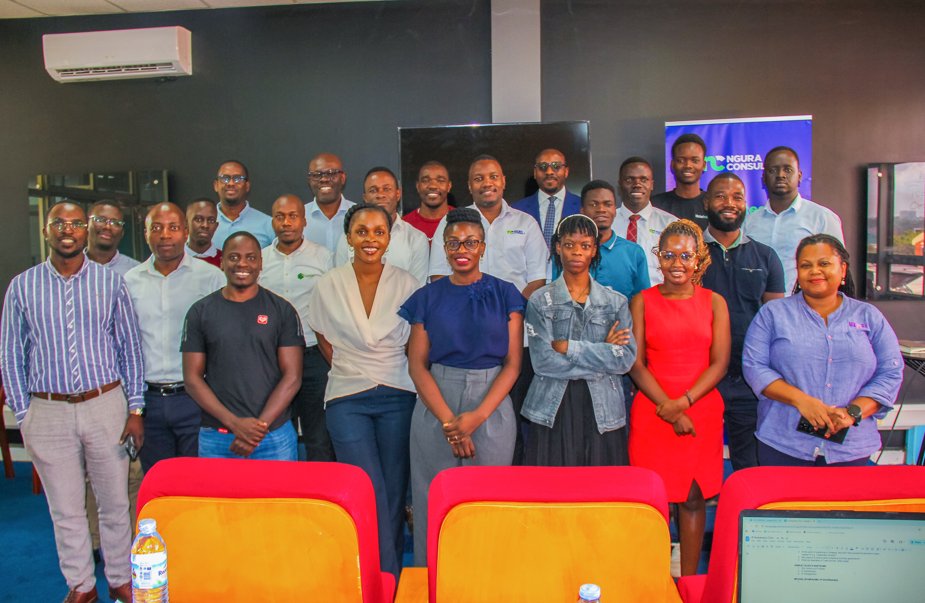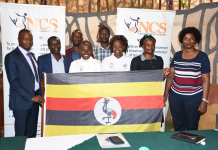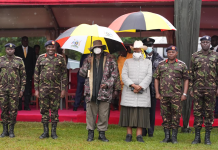Imagine pouring your heart and soul into building a groundbreaking app, only to discover a competitor has legally replicated your core features, leaving you with little recourse.
This isn’t hypothetical nightmares; it is a real challenge many tech founders face. And it’s precisely why the Intellectual Property (IP) Awareness Clinic, held at the National ICT Innovation Hub, was a crucial gathering for the startup community in Kampala. This exclusive gathering brought together legal experts, entrepreneurs and ecosystem leaders to explore how IP can be leveraged as a core business asset.
Organized in collaboration with the Ngura team, this high-impact event pulled back the curtain on intellectual property (IP), urging entrepreneurs to see it not as a daunting legal hurdle, but as a fundamental building block for success.
“Many founders move at lightning speed from idea to launch, and that’s commendable,” shared Flavia Opio, Team Lead at the National ICT Innovation Hub. “But what often gets overlooked is legally owning and safeguarding those brilliant ideas and the processes behind them. Our role is to help them recognize, protect, and ultimately monetize these intangible assets that truly drive their company’s value.”
The clinic kicked off with a powerful keynote from leading IP lawyer Paul Asiimwe, Managing Partner at SIPI Law Associates, who tackled ” De-risking innovation through legal and strategic IP imperatives for startup success”. Paul didn’t just talk theory; he drew from his extensive experience advising founders, investors and corporates, painting a vivid picture of the very real legal and financial pitfalls of ignoring IP. He emphasized, “IP isn’t just paperwork. It’s a strategic asset that investors seek, competitors try to mimic, and founders must protect from day one. The winners are those who embed IP into their growth strategy, not as an afterthought.”
Following Paul, Shirley Gladys Nakyejwe, an Intellectual Property Specialist from the Ministry of ICT and National Guidance, demystified what founders can truly call their own in her session. Shirley tackled common misconceptions, clarifying what constitutes protectable innovation, from the lines of code that power an app to the unique design of a product, a distinctive brand, or even proprietary operational processes. This is critical for founders who might think their brilliant idea is enough, without understanding the tangible forms of IP they can protect.
Closing the speaker sessions was Michael Byamukama from Ngura, an expert in startup legal frameworks, with a practical talk titled covering internal IP Governance. Michael delved into the often-overlooked internal governance issues that can become major headaches down the line. Things like clear ownership structures within a team, robust IP assignment clauses and solid contractor agreements. These details, if not handled early, can easily derail fundraising efforts or exit opportunities.
The interactive Q&A session that followed showed the much need for more conversations like these. Questions ranged from the nuances of trademarks to IP audits, software licensing, and what investors truly expect when it comes to IP.
“This was exactly what I needed,” remarked Immaculate Muthoni, Risk and Compliance Officer at IOTEC, summing up the sentiment of many attendees. “No fluff, just clear direction on how to protect what we’re building.”
Attendees left the clinic armed not only with valuable insights but also with actionable first steps towards building their own IP protection strategies.
The IP Awareness Clinic was part of a broader effort by the National ICT Innovation Hub to raise awareness around intangible assets as drivers of valuation and growth in tech entrepreneurship.























